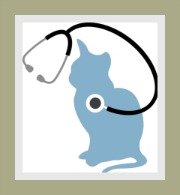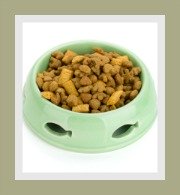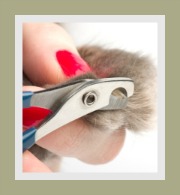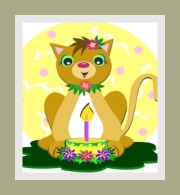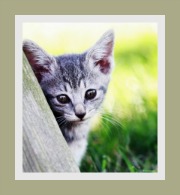Cat Diseases
Symptoms of Illness
There are various cat diseases or rather feline illnesses that can affect your cat. Many cat illnesses can be identified by signs and symptoms that your cat presents with.
As a cat owner, you will quickly identify when your cat is ill. You will be familiar with your cat's characteristics, eating habits and behavior patterns.
A cat owner who 'knows' their cat will be aware of any cat health problems.
common signs and symptoms
There are a number of signs and symptoms that are common to many illnesses and diseases. We cover some of the most common here
symptomSneezing is dealt with under Feline Diseases |
descriptionCat constipation is described as a condition where the cat has difficulty emptying its bowels. Cat diarrhea is a condition where the cat passes frequent and watery stools (loose stools). Cat vomiting occurs when the contents of the cat's stomach are forcefully ejected from the mouth. Cat sneezing is the sudden, forceful and involuntary expulsion of air from the nose and mouth - usually caused by an irritant. |
healthy cat vs sick cat
A healthy
cat will have a cold wet nose with no discharge (a warm nose is not
always a sign that the cat is unwell).
Its eyes will be alert and bright and have no discharge.
Healthy ears will be clean, clear of wax build-up, odorless and the cat will be alert and respond well to sound. An occasional ear scratch is normal, but continuous scratching may indicate ear mites.
A healthy cat will have clean white teeth and pink gums. Yellow teeth may be an indication of plaque formation and red inflamed gums a sign of gum disease.
A healthy cat will have a glossy coat without bald patches, dandruff, scabs or an unpleasant smell. The cat should not scratch excessively as this could indicate a flea infestation or skin disease.
A healthy cat will have one to two bowel movements a day (this is dependent on diet) and they will pass urine several times a day. An increase in frequency of urination or passing of stools or straining may be symptoms of certain cat diseases.
A healthy cat does not lick its anus excessively and there is no sign of 'scooting'. (Scooting means your cat drags its back-end across the carpet).
Cats with diarrhea, blood or mucus in the stool or blood in the urine need to see a veterinarian.
A healthy cat will have a good appetite and have a normal body weight - not too thin and not too fat as this may be indicative of cat diseases.
Prolonged lack of appetite, diarrhea or vomiting are all signs feline diseases and needs veterinary attention.
To avoid your financial situation getting in the way of seeking veterinary care for your cat (or dog), you should consider a comprehensive health insurance plan for your kitty.
There are some amazing insurance plans available to pet owners. Before you take the plunge, do look at this cat insurance guide and avoid the pitfalls.
Top of Cat Diseases Page
search our site
please like us
share our site
recommend on google
favorite pages

